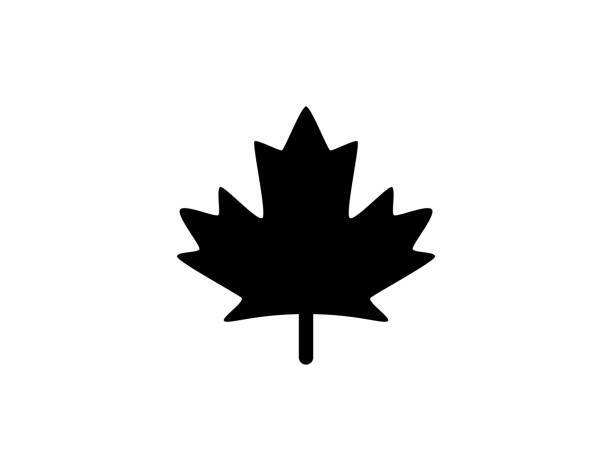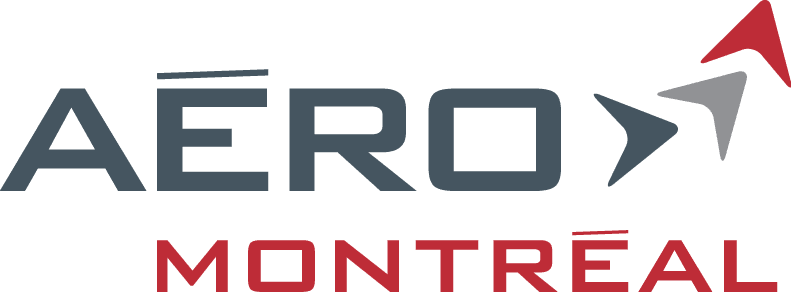American and Canadian Tariffs
Information monitoring


Export customs tariffs
TUESDAY MARCH 4th, 2025- FACT SHEET : President Donald J. Trump proceeds with tariffs on imports from Canada and Mexico
- Implementation of Tariffs: President Trump is imposing tariffs on Canada and Mexico under the IEEPA to combat the threat posed by drug trafficking to the national security of the United States.
- Donald Trump's Trade Commitment: He is implementing a strict tariff policy to protect American interests, including tariffs to secure the border and previous actions on steel and aluminum.
- Cartel Presence in Canada: There has been an increase in fentanyl and nitazene synthesis labs in Canada, with "super labs" capable of producing up to 66 pounds of fentanyl per week.
- Seizure Consequences: The quantities of fentanyl seized at both the northern and southern borders are sufficient to kill millions of Americans, illustrating the scale of the crisis.
- President's Action on Immigration: He accuses the Biden administration of causing the worst border crisis in history, with over 10 million illegal entry attempts.
- Links Between Immigration and Crime: The influx of illegal immigrants is said to have negative effects on the economy, public infrastructure, and crime rates.
Source: The White House
THURSDAY FEBRUARY 13th, 2025 - « Fair and Reciprocal Plan »
- On February 13, Donald Trump signed a presidential memorandum on "unfair trade practices," which will lead to the development of a "Fair and Reciprocal Plan" aimed at correcting trade deficits related to tariff barriers by applying the principle of reciprocity. The memorandum specifically mentions tariffs imposed by some countries on American products, as well as measures such as the digital services tax levied in Canada.
- After targeting aluminum and steel, the president hinted that he could impose tariffs on the automotive and pharmaceutical sectors, focusing solely on American production capacity.
- President Trump reiterated his interest in making Canada the 51st U.S. state, emphasizing that economic relations would be better.
MONDAY FEBRUARY 10th, 2025- A 25% tariff on the import of steel and aluminum products.
- The U.S. president signed two decrees on February 10 and 11 to impose a 25% tariff on the import of steel and aluminum products. These tariffs would come into effect on March 12.
- These 25% tariffs would be in addition to those announced on February 4, which would come into effect on March 4, should their suspension be lifted. This would bring the total tariff to 50% on these products, according to the White House.
TUESDAY, FEBRUARY 4TH 2025- Canada gets a one-month-delay.
- The proposed customs duties are suspended for 30 days while both countries collaborate on these initiatives.
Justin Trudeau announces a $1.3 billion border plan, including helicopters, technology, additional personnel, and increased cooperation with the United States to secure the border and combat fentanyl trafficking. - Canada and the United States will launch a joint task force against organized crime, fentanyl trafficking, and money laundering, supported by $200 million for intelligence services.
- Nearly 10,000 agents will be deployed, and a fentanyl "czar" will be appointed; Mexican cartels will be added to the list of terrorist entities
SATURDAY, FEBRUARY 1st 2025- Impose tariffs to combat the flow of illicit drugs crossing our northern border
National Emergency Declaration: President Trump expands the national emergency to include the opioid crisis and Canada's role in illicit drug trafficking, particularly fentanyl.
Imposition of Tariffs on Canadian Products: An additional 25% tariff is applied to most Canadian products, while energy resources are subject to a reduced tariff of 10%.
Strengthening Customs Measures: Tariff exemptions for small shipments are removed for Canadian products, and no duty drawback will be granted.
Surveillance and Cooperation: The Department of Homeland Security will monitor Canada's cooperation and provide advice on lifting tariffs if sufficient progress is made.
Sanctions in the Event of Retaliation: If Canada imposes tariffs in response, the United States reserves the right to increase or expand tariffs to maintain their effectiveness.
TUESDAY MARCH 4th, 2025 - Statement from the Prime Minister on the unjustified tariffs imposed on Canada by the United States.
- Although less than 1% of the fentanyl intercepted at the U.S. border comes from Canada, we have worked tirelessly to combat this scourge, which affects both Canadians and Americans.
- We have implemented a $1.3 billion border plan, appointed a fentanyl czar, added transnational criminal cartels to the list of terrorist entities, launched the Operations and Intelligence Coordination Cell, and are establishing a joint Canada-U.S. task force on organized crime.
- Fentanyl seizures from Canada made by the U.S. Customs and Border Protection have dropped by 97% between December 2024 and January 2025, to 0.03 pounds. They have therefore been nearly eliminated.
- Canada is responding by imposing a 25% tariff on $155 billion worth of U.S. goods, as follows: tariffs on $30 billion of goods immediately, and then tariffs on $125 billion of U.S. products in 21 days.
- Our tariffs will remain in place until the U.S. trade measure is withdrawn. However, in the event that U.S. tariffs remain in place, we are actively discussing with the provinces and territories to implement several non-tariff measures.
WEDNESDAY, FEBRUARY 5th 2025 - Announcement from the Prime Minister of Canada, the Honorable Justin Trudeau
Prime Minister Justin Trudeau announced the holding of the Canada-United States Economic Summit on February 7, 2025.
This event will be organized with the members of the Canada-U.S. Relations Council in Toronto.
The goal will be to bring together sectoral expertise to explore ways to grow the Canadian economy, facilitate housing construction, promote domestic trade, diversify export markets, and boost productivity
The Canada-United States Economic Summit will build on the work of the Prime Minister’s Council on Canada-U.S. Relations and will bring together Canadian leaders from the fields of trade, business, public policy, and labor unions.
TUESDAY, FEBRUARY 4th 2025 - Reaction from the Premier of Quebec, Mr. François Legault
The Premier of Quebec, François Legault, expressed concerns about a tariff threat that affects the economy of Quebec and Canada.
The Premier stresses the need for a collective effort and increased determination to overcome this economic crisis.
Despite the delay in tariffs, economic uncertainty, exacerbated by Mr. Trump's actions, continues to negatively impact investments and the economy.
François Legault calls for a swift renegotiation of the free trade agreement with the United States, rather than waiting for the scheduled review in 2026.
He emphasizes the importance of the economy in funding essential sectors such as health, education, and culture, and how it is crucial for realizing the province’s ambitions.
SATURDAY, FEBRUARY 1st 2025 - Announcement from the Prime Minister of Canada, the Honorable Justin Trudeau
Canada is implementing counter-tariffs of 25% on goods totaling $155 billion in response to U.S. measures deemed unjustified.
The first phase will target $30 billion worth of products starting on February 4, 2025 (including food products, alcoholic beverages, clothing, household appliances, and motorcycles). A comprehensive list of these goods will be available soon.
The government plans measures to mitigate the impact of these counter-tariffs on Canadian businesses and workers, including targeted exemptions and financial support programs.
A second wave of tariffs will apply in 21 days to give Canadian businesses time to adjust and will cover an additional $125 billion worth of goods.
SATURDAY, FEBRUARY 1st 2025 - Reaction from the Premier of Quebec, Mr. François Legault
Many Quebec businesses will be severely impacted, and the Quebec government is committed to supporting them. It is estimated that more than 100,000 jobs could be lost in Quebec.
The President of the Treasury Board, Ms. Sonia LeBel, has been tasked with reviewing all U.S. companies that bid or work with the Quebec government in terms of supply. These companies will be penalized.
The Premier hopes that Quebec businesses will view this difficult situation as an opportunity to develop new markets and new products.
Investissement Québec and the CPDQ have also been in discussions with the government to accelerate development projects.
Important

After the announcement of a thirty-day reprieve on the imposition of tariffs by the United States, the Canadian government also suspended the imposition of any tariffs on U.S. imports.
It has also put on hold the 21-day consultation period intended to define the U.S. products worth $155 billion that would have been subject to tariffs.
However, this list still exists, and organizations are encouraged to contact the government directly to refine it.
Customs Tariffs - Aluminum and Steel
MONDAY, FEBRUARY 10th 2025- Adjusting Imports of Steel into the United States
- Reinstatement of General Tariffs on Steel and Aluminum: The decree signed by President Donald Trump on Monday, February 10, ends special agreements (quotas, exemptions, differentiated tariffs) previously established with countries such as Canada, Mexico, South Korea, Japan, the United Kingdom, the EU, Australia, Argentina, Brazil, and Ukraine. Starting March 12, 2025, aluminum and steel (and their derivatives) from these countries will again be subject to the initial 25% additional tariff.
- Extension of Tariffs to Additional Derivatives: Some processed steel products (derivative items that were not initially covered) will now be subject to these tariffs. Imports of high-steel-content products will have to pay these duties if the steel used was not melted and poured in the United States.
- Abolition of the Exclusion Process: The mechanism that allowed certain products to be excluded due to insufficient availability or quality in the U.S. is canceled. Exclusions already granted will automatically expire at the deadline or once the authorized quantity has been imported, and all general exclusions will end on March 12, 2025.
- Strengthening Customs Controls: The government plans to strengthen customs controls, particularly to penalize any circumvention (through transformation or reclassification of products) aimed at bypassing the tariffs. Authorities will impose maximum penalties for false origin declarations or misrepresentation of steel composition

